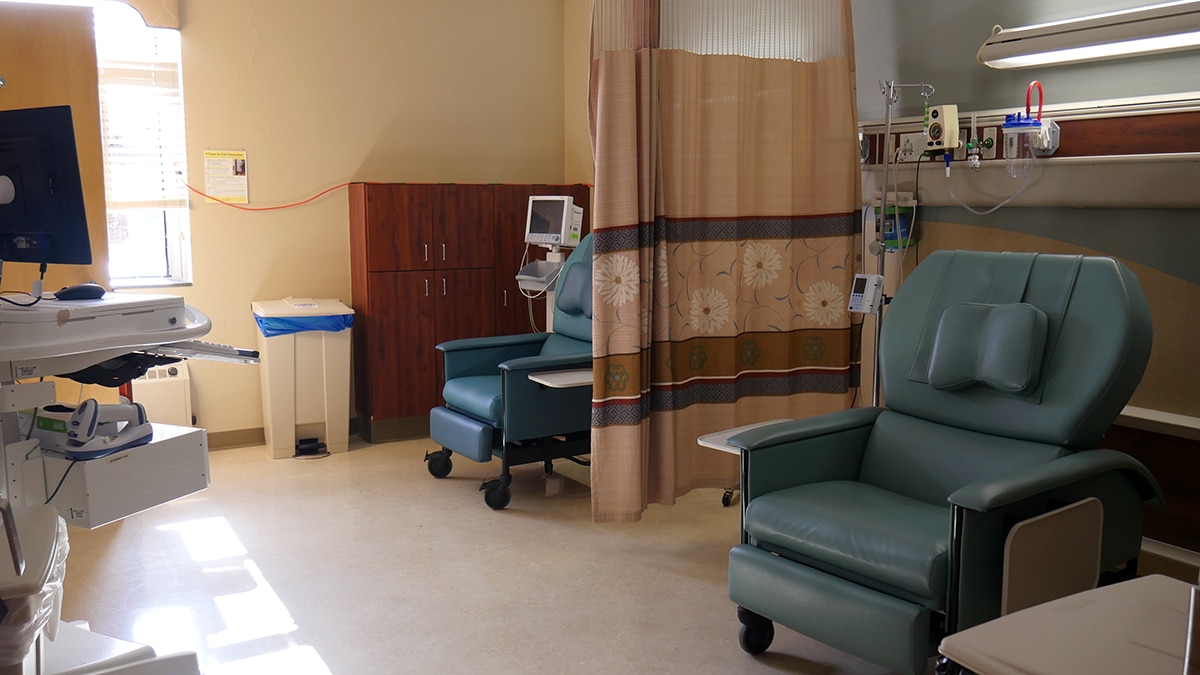August 31, 2021
The U.S. Food and Drug Administration (FDA) has issued an Emergency Use Authorization (EUA) to permit the emergency use of Monoclonal Antibody Therapy to treat mild to moderate COVID-19 in certain patients who test positive for COVID-19 and who are at high risk for progression to severe COVID-19, including hospitalization or death. It’s important to note that this treatment is not a substitute for vaccination against COVID-19.
Before you are exposed to COVID-19, The best way to reduce the chances of severe illness, hospitalization, or death, including from the Delta variant, is to be vaccinated. Learn more about how to receive a vaccine in Watauga and Avery Counties.
High-risk patients who have recently tested positive for COVID-19 and have had symptoms for 10 days or less, should talk to their healthcare provider to see if monoclonal antibody treatment is right for them.
This treatment is currently available at Appalachian Regional Healthcare System (ARHS) by referral only.
What is Monoclonal Antibody Therapy (mAb)?
Your body naturally makes antibodies to fight infection. However, your body may not have antibodies designed to recognize a new virus like SARS-CoV-2, the virus that causes COVID-19.
Monoclonal antibodies, or mAbs, are lab-produced molecules that help your body fight off illness. Monoclonal antibodies can restore, boost or imitate your immune system’s response to the virus by replacing your natural antibodies. This treatment is administered by infusion. (source)
Who can receive mAb therapy?
High-risk adults ages 18 and older may be eligible for treatment through ARHS. The FDA has approved treatment for high-risk youth patients between the ages of 12-17 and weighing less than 88 pounds, however, ARHS does not currently administer pediatric mAb therapy.
High-risk factors can include:
- Older age
- Obesity or being overweight
- Pregnancy
- Chronic kidney disease
- Diabetes
- A weakened immune system or taking medicine that weakens your immune system
- Heart disease including high blood pressure
- Lung disease such as COPD, asthma, or cystic fibrosis
- Sickle cell disease
- Cerebral palsy or other developmental conditions
- Regular use of a feeding tube or ventilator
Other medical or non-medical factors may also put individuals at higher risk for severe COVID-19.
Who cannot receive mAb therapy?
Monoclonal antibodies are not authorized for use in patients who:
- Are hospitalized due to COVID-19
- Require oxygen therapy due to COVID-19
- Require an increase in baseline oxygen flow rate due to COVID-19 in those on chronic oxygen therapy due to an underlying non-COVID-19 related condition
How to receive mAb therapy through ARHS:
With 10 days of the first COVID-19 symptoms:
- Get tested for COVID-19
- If your test is positive, contact your primary care provider to ask if Monoclonal Antibody Therapy is right for you.
- If appropriate, your provider will send a referral to ARHS to schedule your mAb infusion appointment.
Share this page

